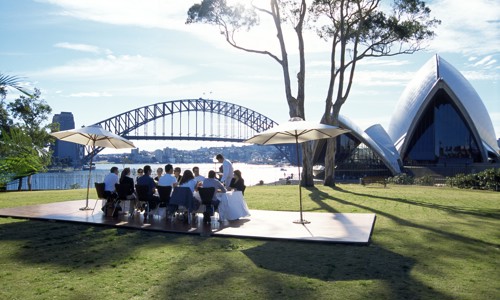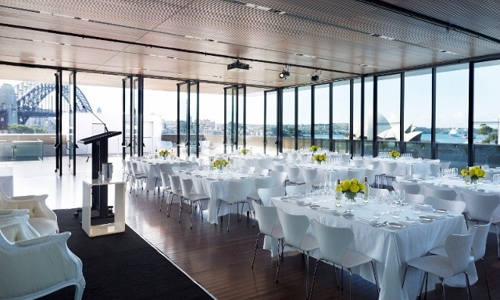Ten tips for planning your next business event

Business events help build relationships, foster professional development, engage staff, and generate new ideas and opportunities. Whether you plan to host a meeting for 500 or 50 people – fully in person or via hybrid access – we know there are timeless key principles that will help you plan a successful business event that can positively affect both people and planet.
-
Identify and state your objective
Clearly identify the purpose of your event and what you would like to achieve for your organisation, for your industry, for delegates, and for local communities. With these outcomes in mind, you can then ensure everyone involved understands the brief and you can start to design an event that will create the results you want.At this stage, you may also want to consider the sustainability and social impact you want to create, so that you can embed necessary measures – and values – from day one. On our website, you can find information and tools on environmental and social sustainability for events in Sydney and how the BESydney team can help.
-
Know your audience
Think about who you want in the room for your business event: is it primarily for clients, stakeholders, or staff? Or is it for a combination of different audiences and, if so, is there an ideal balance that will ensure your program works? Also, think about how many people you want in the room. For example, if you are planning a gala dinner, you may want to invite more people than your target number, to allow for those who cannot attend and inevitable no-shows on the day. -
Set your budget
Your budget will determine a range of elements throughout your business event, from the program and venue(s) to catering and entertainment. At the outset, prioritise those elements that are most important to deliver against your objective. For example, if program content and keynote speakers are your priority, you may choose to spend less on venues and entertainment. Whatever your budget, it is always a good idea to allocate a percentage to cover any unexpected costs that might arise. -
Choose your theme
Once you know your objective, audience, and resources, you will be well placed to think about your theme and ideal formats through which it can be experienced and explored by attendees. For example, if you want to thank clients and position your organisation a trusted partner, you may want to organise a gala dinner with a keynote delivered by an industry expert. You may also want to include elements that will allow your guests to interact, network and be entertained – your business event may be the only time these particular people come into contact, so these are great opportunities for them to connect and build relationships. -
Set the date
If your event is held on a recurring basis, your date may already be set for you. However, if you are planning a new event, you may want to:
-
-
schedule your event to allow for a planning period of at least 4 to 6 months
-
check public and school holiday dates, which may affect attendee and venue availability
-
check parliamentary sitting calendars if you wish to invite government representatives
-
check the availability of key participants, such as guest speakers, presenters, and VIP guests
-
Once you have a confirmed date, you can start booking venues and other suppliers, and send a ‘Save the Date’ notice to your attendees.

- Create an event project plan and timeline
Think through every element of your event and map key delivery needs against a timeline. This can be as simple as making an excel spreadsheet, or you may want to use a more comprehensive project management tool. A clear checklist and timeline that is shared with everyone working to deliver your event will help you track progress, keep sight of fine details, and know who needs to be involved and when. - Find your ideal venue
Now that you know what you want to achieve, you should find a venue that can help you realise your goals. If your target audiences are international or interstate, you may want to choose a venue in the heart of the city, close to different accommodation and entertainment options; or you may want to choose a venue that will excite and surprise your guests. You can find a range of great venues and experiences online, via our Find a supplier tool. - Bolster your budget through sponsorship
You may want to offer sponsorship opportunities if that aligns with the purpose and theme of your event. In addition to providing additional budget to help you deliver your event, sponsors can bring beneficial connections, brand association and promotion opportunities. It is a good idea to develop sponsorship packages that clearly outline what you offer and what you seek in return (for example logo placement or media opportunities). - Promote your event
The purpose of your event will dictate how you promote it to attendees. For example, if you are hosting a gala dinner for invited guests only, you may simply send out an invitation. However, if you plan to host a large event, you may want to develop a communications and marketing strategy to encourage delegate attendance and ticket sales, which may include a dedicated website, email campaigns, social media, industry advertising and/or promotion via sponsors. However, you choose to promote your event, you should ensure that messages and platforms are consistent. - Evaluate your event
Every event is an opportunity to learn, and you will gain great insight from your delivery team and attendees alike. You may want to consider holding a debrief session with your team and delivery partners to assess how your delivered against your objectives; and asking your attendees for feedback (whether directly or via evaluation surveys).




